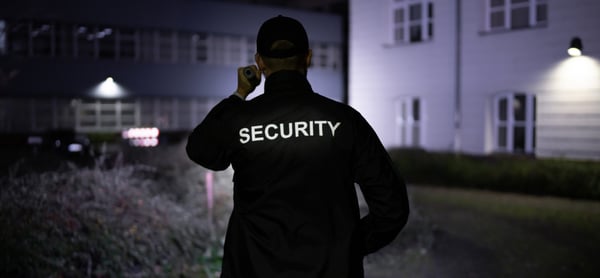The old saying, “You speak volumes before the first word is spoken,” couldn’t be truer! As a personal safety expert and defensive tactics trainer with over 30 plus years of training and experience in law enforcement, corrections and the United States Marine Corps, I have often read assault victim reports, in which when asked what happened, the person shrugs, “I don’t know, he just punched me.”
Posts about Articles (11)
Managing Security and Safety in Healthcare Using Respect and Dignity
When differences divide us, treating each other with dignity by showing respect establishes a common ground for managing conflict.
'Hey, You Grabbed Me The Wrong Way!'
Have you ever taken a self-defense class and heard an instructor say something like, “No, grab my other arm?” or “Hey, you grabbed me the wrong way?” So, if you're grabbed by the wrist, the arm, the shirt, or the throat, do you really want to take the time to think about what move you need to escape? Wouldn't it be much better to have a self-defense technique that is easy to learn, recall, and...
It Only Takes Seconds to Injure Your Trachea
Many nurses work with patients who are experiencing various levels of pain, fear, and emotional distress, which can sometimes lead to violence. As a result, nurses are sometimes choked by patients; and not only with their bare hands, but with I.V. tubing, electrical cords, medical device leads, I.D. lanyards, and even bedsheets! This places them, of course, in great danger of asphyxiation,...
Listening to the Hand
Although much of crisis intervention or de-escalation concentrates on the spoken word, the reality is often what we say is not nearly as important as how we say it. When angry or frightened people can’t comprehend what we’re saying with our mouths, they can still listen and respond to what we say with our hands and other body language.
How to Be Safe and Compassionate and Why it is Important to be Both
If we had to open the heart of a nurse, we would see many things like compassion, empathy, and love. Now more than ever, these loving people are often placed in situations that can compromise their safety.
The Role of Conflict Management Training in Stellar Customer Service
Learn The One Personal Tactic you need to stay safe from most assaults
How Campuses Can Use Training + Expectations to Aid Suicide Prevention
College campuses are crowded places. From dorms and lecture halls to gymnasiums and dining halls, college students spend those formative years shoulder-to-shoulder. Is it still possible to be lonely and isolated on a college campus? What are the signs of loneliness, if it’s something other than just being physically alone? Most importantly, why do campus workers need to know the signs of...
A New Way of Thinking About Healthcare Worker Safety
Many years ago, when I was working as a hospital security officer, I was sent to a patient unit regarding a “combative patient.” Oddly enough, healthcare workers rarely regard themselves as being in “combat” when a patient is grabbing, hitting, or kicking them; but, when they describe someone who is acting out at the moment, they often choose the adjective “combative” to describe the behavior...











